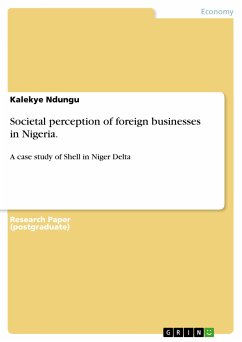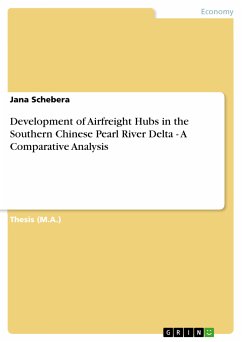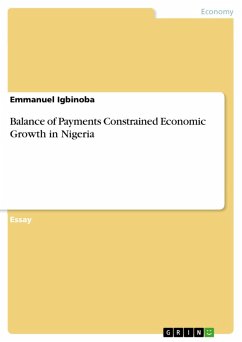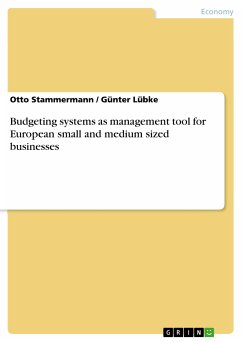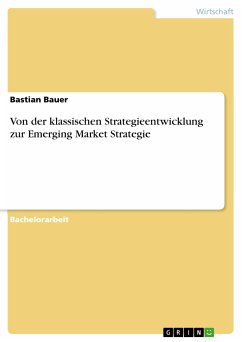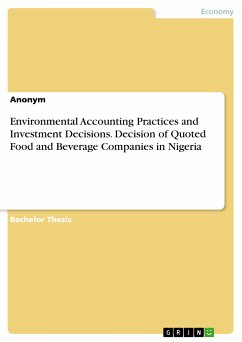Research Paper (postgraduate) from the year 2011 in the subject Business economics - General, grade: A, University of Newcastle, language: English, abstract: The oil and gas industry is one of the largest industries in the world. International Energy Agency estimates that in the next 25 five years, an overall $3 trillion global worth of investment is likely to be made in this industry. Astonishingly, this large investment accounts for only 6% or lesser of the expected revenues during the next 25 years from this industry (McPherson and MacSearraigh 2007). The gross oil and gas sales revenue are estimated to be $1.5 trillion per year. Moreover, since the oil and gas commodities are sold multifold within a supply chain, the volume of worldwide oil and gas trade is even much bigger. Due to the large volume of oil and gas revenues, this industry is often directly linked to the economic and social wellbeing of nations. For a foreign business operating within oil and gas industry in overseas market to bolster its relationships with its stakeholders to sustain its growth and profitability, it is crucial that its activities are perceived to instigate economic and social wellbeing for the nation. The global demand for oil and gas continues to increase due to the rising income level and population in most of the developing countries. Due to the rising demand of oil and gas commodity, the control over oil and gas resources can be a concrete source of enrichment and driver for development. However, the very reason that makes oil and gas business such a high value industry also makes it prone to controversies, bad governance, corruption and driver of conflict. Many oil and gas rich countries including Nigeria, Indonesia, Sudan, Liberia, and Bolivia among many others are salient examples of this contention. The matter of controlling these valuable natural resources and the right over the revenues generated from them is the cause of varying conflicts. It is reflected through the fact that throughout the 20th century and most of the 21st century, most of the developing nations of the world rich in oil and gas were marred by high level of political instability as well as high level of poverty and underdevelopment (Karl, 1997; Ross, 2001; Eifert et alet al. 2002). By being at the helm of affairs, foreign oil and gas companies operating in these regions are often viewed as part of the problem.

